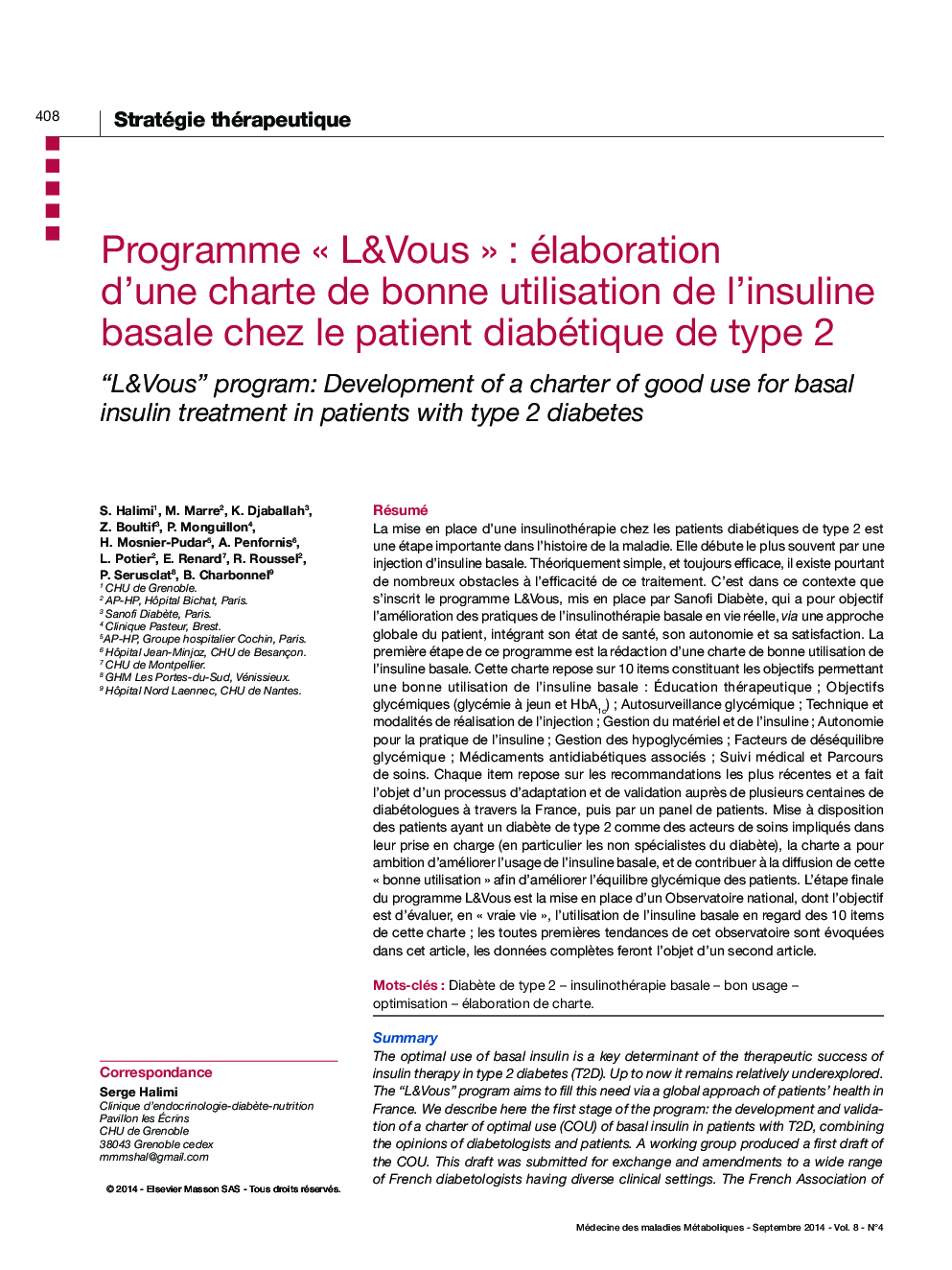| Article ID | Journal | Published Year | Pages | File Type |
|---|---|---|---|---|
| 3274412 | Médecine des Maladies Métaboliques | 2014 | 7 Pages |
Abstract
The optimal use of basal insulin is a key determinant of the therapeutic success of insulin therapy in type 2 diabetes (T2D). Up to now it remains relatively underexplored. The “L&Vous” program aims to fill this need via a global approach of patients' health in France. We describe here the first stage of the program: the development and validation of a charter of optimal use (COU) of basal insulin in patients with T2D, combining the opinions of diabetologists and patients. A working group produced a first draft of the COU. This draft was submitted for exchange and amendments to a wide range of French diabetologists having diverse clinical settings. The French Association of Diabetic Patients made a further and additional analysis and refinements of the draft. A total of 500 diabetologists and other Health Care Providers (HCP) participated in the final document. Two thirds of the participants declared a “complete or overall agreement” with the COU. This charter includes 10 items regarding the key requirements for an optimal use of basal insulin as: autonomy for insulin injection and titration, knowledge of glycemic targets, blood glucose monitoring, management of hypoglycemia, educational approach for better quality of life⦠Patients' opinion was found concordant with that of HCP, but with small improvements as on lifestyle and dietary rules adapted to insulin use. In conclusion, the COU has aroused a great interest among HCP and patients. This should allow the second step of “L&Vous” program: the implementation of this COU to evaluate, on a large scale, basal insulin use in “Real Life” by T2D patients in France. Early trends of the observatory are discussed here; the full results will be published soon in a second article.
Related Topics
Health Sciences
Medicine and Dentistry
Endocrinology, Diabetes and Metabolism
Authors
S. Halimi, M. Marre, K. Djaballah, Z. Boultif, P. Monguillon, H. Mosnier-Pudar, A. Penfornis, L. Potier, E. Renard, R. Roussel, P. Serusclat, B. Charbonnel,
